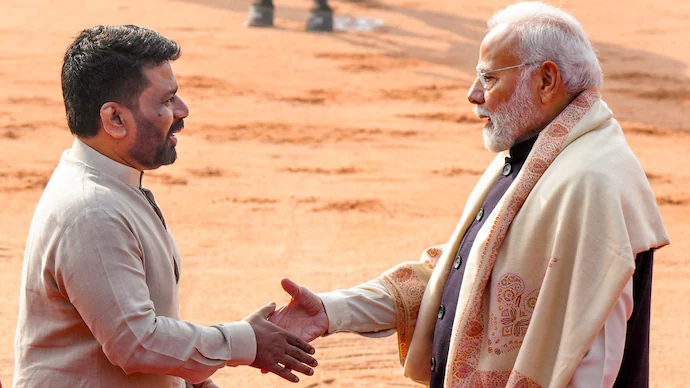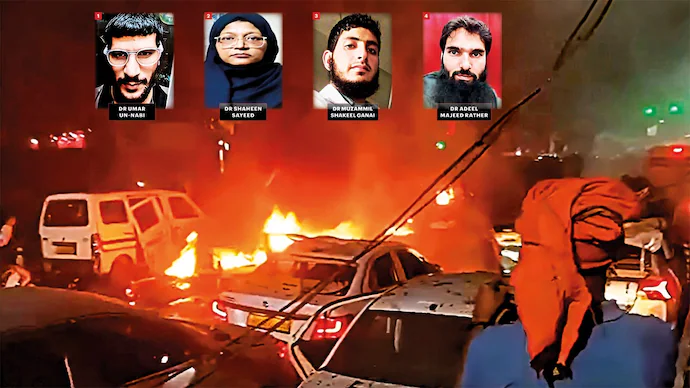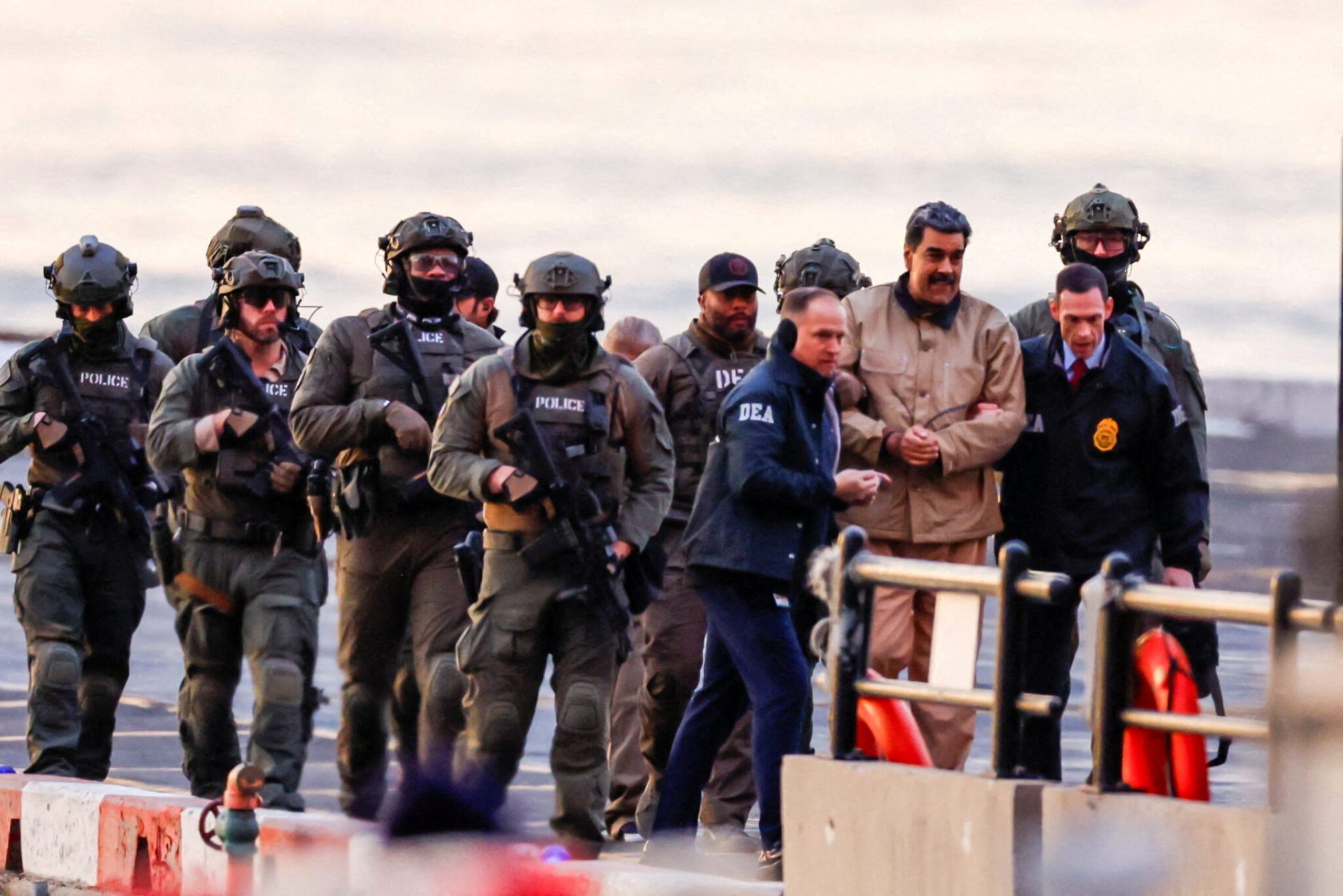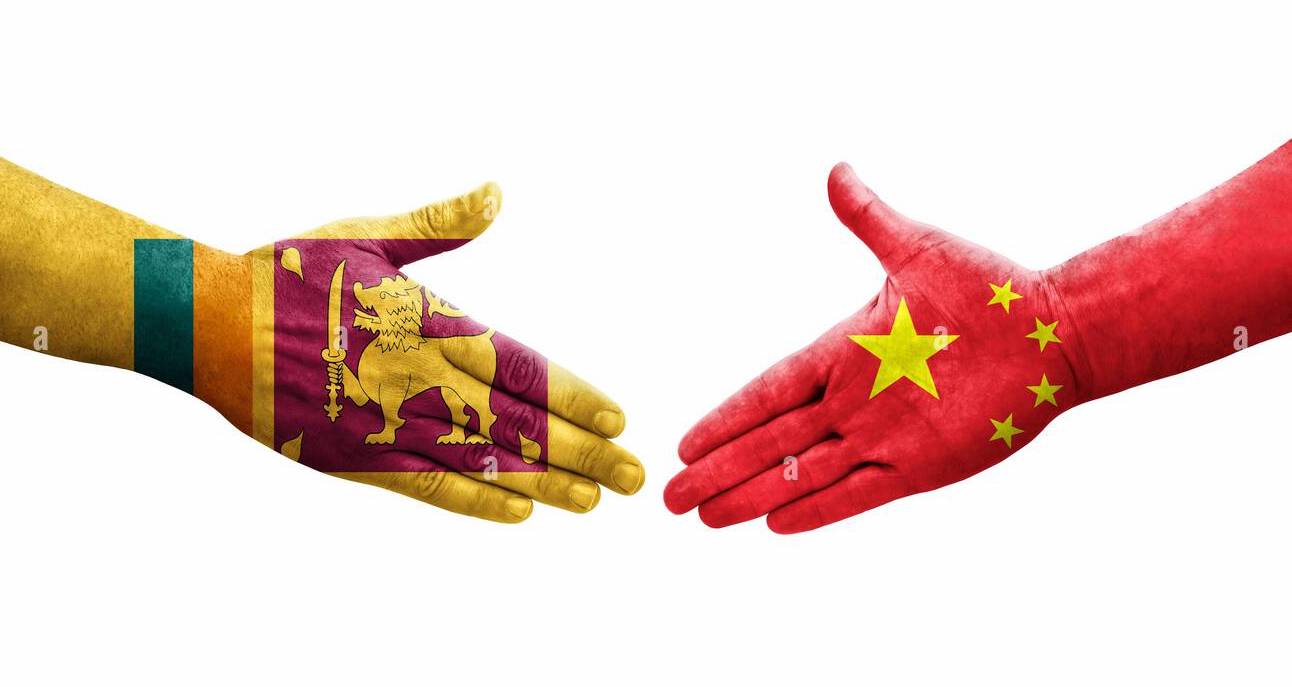The Janatha Vimukthi Peramuna (JVP), which viewed India as a foe and until recently held negative opinions about India, has taken over the Sri Lankan government. The once anti-state insurrectionist group has now become the most powerful ruling party in Sri Lanka with a new face, National People’s Power (NPP).
A party that received just three percent of the vote in the 2019 presidential election has secured 159 seats in 2024, receiving 62 percent of the vote. This rise of the JVP is both surprising and alarming given that in Sri Lanka rulers who have gained a parliamentary majority have a history of plunging the country into crisis.
Dissatisfaction with the traditional parties that dominated the South for decades fuels a desire for a new face in politics. It was against this backdrop that Anura Kumara Dissanayake emerged as a popular one who succeeded in showing himself as an alternative leader among southerners who had faith in Gotabaya Rajapaksa, the first president to declare himself a Sinhala Buddhist leader. Even though the National People’s Power is a coalition of various political groups, the JVP’s influence is paramount on the ideological-political agenda.
Future of Indo-Lanka accord?
Historically, the JVP is well-known for its anti-India propaganda in Sri Lanka. In the words of JVP’s principal leader Rohana Wijeweera, India is a bullying state that has an expansionist agenda. The JVP used “Indian expansionism” as one of its (Panthi Paha) five classes for ideological indoctrination of its cadre with the aim of antagonizing them against India.
Based on the campaign against the Indo-Sri Lanka Accord, the JVP launched its second insurrection between 1987 and 1989. It reached its peak in 1989. During this period, the JVP targeted Indians and launched a campaign to boycott Indian cinema, music, and goods. In this period, the JVP had an anti-India military wing known as Deshapremi Janatha Vyaparaya (Patriotic People’s Movement).
The question that arises now is what will happen to the future of the Indo-Sri Lanka Accord, signed on July 29, 1987 between Prime MInister Rajiv Gandhi and President J R Jayawardne, under JVP’s rule? Dismantling the Indo-Sri Lanka Accord has been a long-standing desire of ultra-Sinhala nationalists in the deep south of the country. However, to date, no party has demonstrated the courage to openly challenge the Indo-Lanka Accord.
It was against this backdrop that the comments made by JVP General Secretary Tilvin Silva regarding the provincial council system were considered controversial. Silva later clarified that the media had distorted his comments, suggesting that the provincial council system would continue until the introduction of a new constitution. In Silva’s view, the provincial council system is a failure that is of no use in the current political situation.
Opposition to 13th Amendment
The opposition to the India-sponsored 13th Amendment is not a new phenomenon in Sri Lankan politics. Former president Gotabaya Rajapaksa also held the same opinion. The purpose of appointing Milinda Moragoda as ambassador to India was to convince South Block to adopt this idea. In Moragoda’s knowledge, the provincial council system is an unnecessary layer of expensive administration that is “superfluous, expensive, divisive, and fraught with inefficiency.”
Tilvin used the same words in different ways. Gotabaya Rajapaksa attempted to bring about a new constitution with the sole purpose of abolishing the 13th Amendment. The reality is that the provincial council system is not an extra layer of administration but rather it is deliberately presented as an extra layer of administration.
The successful enactment of a new constitution will eliminate the 13th Amendment. If we delve deeper into the reasons for their opposition, it becomes clear that the real issue is not the 13th Amendment to the constitution but rather that the amendment has given India a lasting say in the Tamil national question in Sri Lanka.
There is an argument that the 13th Amendment and the Indo-Sri Lanka Accord are different things. But this is logically a weak argument. The Indo-Sri Lanka Accord was signed with the aim of presenting a political solution for the Tamil-speaking people residing in the northern and eastern provinces of Sri Lanka. This led to the adoption of the 13th Amendment to the Constitution. While the accord encompasses India’s inevitable national interests, its primary objective was to find a political solution to the Tamil question in Sri Lanka. However, all successive governments in Sri Lanka in the last 37 years since the signing of the Indo-Sri Lanka Accord have failed to fully implement the 13th amendment.
In this sense, it is impossible to separate the Indo-Sri Lanka Accord from the 13th Amendment. What is the point of discussing the Indo-Sri Lanka Accord again after the repeal of the 13th Amendment? The process of drafting a new constitution must incorporate India’s involvement in shaping a new political settlement to the Tamil question in Sri Lanka. Article 2.16 (e) of the Indo-Sri Lanka Accord states, “The governments of Sri Lanka and India will cooperate in ensuring the physical security and safety of all communities inhabiting the northern and eastern provinces.”
Based on this, India has the right to intervene for the security and safety of the Tamil people residing in the north and eastern provinces. In this context, the Indo-Sri Lanka Accord and the 13th Amendment are inseparable. The Indo-Sri Lanka Accord is the first document in Sri Lanka that recognizes that the northern and the eastern provinces have been areas of historical habitation of Sri Lankan Tamil speaking people and also that Sri Lanka is a “multi-ethnic and multi-lingual plural society” consisting, inter-alia, of Sinhalese, Tamils, Muslims (Moors) and Burgers.
If this is one aspect of the accord, India’s national security concern is another. India can’t compromise on two important things of its national security. The annexure of the accord stated as “employment of foreign military and intelligence personnel with a view to ensuring that such presences will not prejudice Indo-Sri Lankan relations and the Trincomalee or any other ports in Sri Lanka will not be made available for military use by any country in a manner detrimental to India’s interests.”
The Chinese threat
In the new geopolitical scenario, the existence of the Indo-Lanka Accord is of greater significance than the timing of its signing. The security and strategic concerns that prevailed in the past have taken on a completely new dimension. China’s emergence as an aggressive power in the Indian Ocean Region has created a new security crisis. In particular, China’s interest in deepening its roots in Sri Lanka poses a direct threat to India’s national security.
Given this background, weakening or nullifying the Indo-Lankan Accord would significantly weaken India’s influence over Sri Lanka and the Indian Ocean Region. Allowing the repeal of the 13th Amendment will be the first step to weakening the Indo-Lankan Accord and steps towards ending India’s say in the Tamil national question in Sri Lanka. However, repealing the 13th Amendment would make India’s intervention pointless. How is the Indian government going to respond to this challenge as President Dissanayake travels to New Delhi on his first official visit after taking over as head of state?




